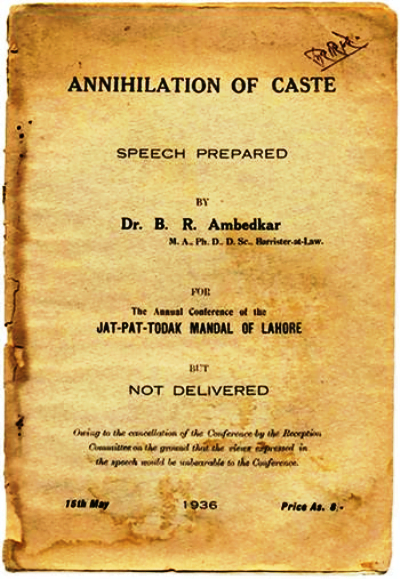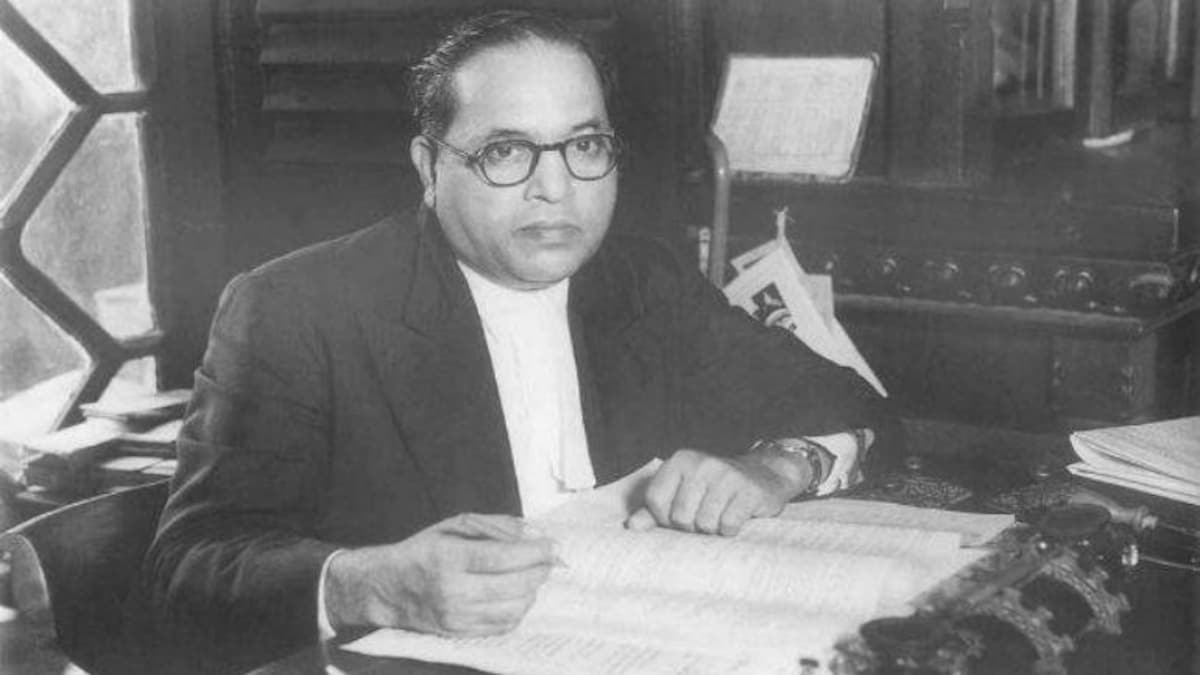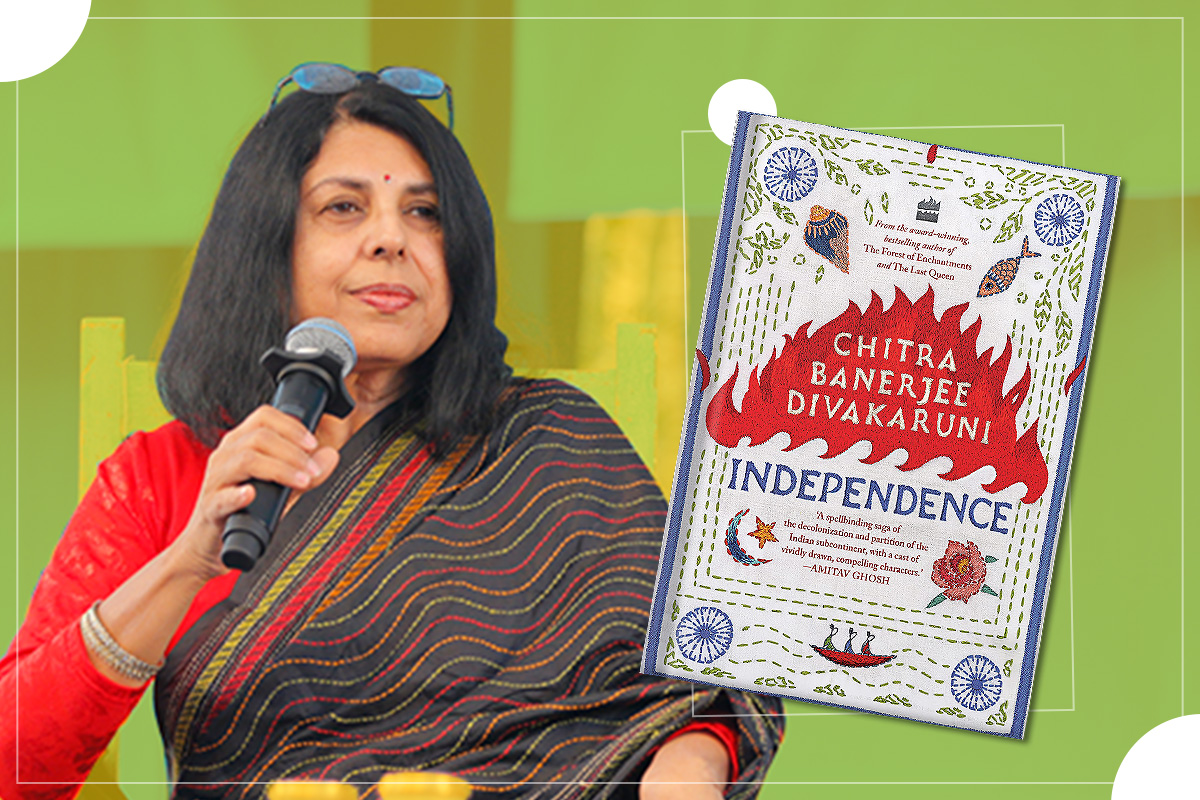Indian society is home to a multiplicity of gender, cultural and religious identities and one certainly cannot ignore the role that caste plays in determining the position of an individual in the local context.
“Religion must mainly be a matter of principles only. It cannot be a matter of rules. The moment it degenerates into rules, it ceases to be a religion, as it kills responsibility which is an essence of the true religious act.”
Dr BR Ambedkar
Dalit literature is the embodiment of voices of those who have been crushed under societal oppression and is written primarily by Dalit writers who have been through harsh realities existing in this hegemonical structure of the society. The genre covers a distinctive and detailed exploration of untouchability and the mental, intellectual, social and cultural effects it has on individuals. Texts, within this genre, also question the ‘shame’ associated with an occupation like manual scavenging and pallbearing. Valmiki Omprakash, Shravan Kumar Lambley, and Bama are some of the pioneers of the Dalit literary movement that fought discrimination through their words.
Annihilation of caste- A needed controversy
Born on 14th April 1981 in a Dalit household in Madhya Pradesh, B R Ambedkar faced several challenges due to his caste and often found himself questioning discriminatory norms, practices, and social institutions that governed Indian society. Abolishing ‘untouchability’ lay at the forefront of his crusade against Hindu conservatism. Ambedkar is known as the architect of the Indian constitution and he was also the first law minister of independent India. After having completed his studies at Elphinstone college he completed his doctorate of economics from Columbia university and the university of London.
Also read: The Historical Erasure Of India’s Groundbreaking Dalit Feminism
“Religion must mainly be a matter of principles only. It cannot be a matter of rules. The moment it degenerates into rules, it ceases to be a religion, as it kills responsibility which is an essence of the true religious act,” says Ambedkar.

The book Annihilation of Caste was originally a part of a speech addressed to ‘Jat-Pat-Todak Mandal’, and it was later published in 1936. The book offers detailed explanations and observations regarding the way individuals belonging to lower castes are treated in the Indian society. It contemplates the unethical and immoral aspects associated with caste discrimination. He further claims that the working class can never truly overthrow the orthodox society and encourages economic reform unless they unite and this unification seems unimaginable owing to caste barriers.
Ambedkar says that while a generalised mobilisation of the Hindus to attack the caste system is not possible as some have more power and prestige to lose than others do, a complete removal of caste itself can be the only way to solve the caste problem. It is also interesting to note that Ambedkar, later in 1956, converted to Buddhism, as he considered it to be the most scientific religion.
The other side of his argument is that caste is not a division of labour but a division of labourers, making indifference the worst kind of disease to exist in society. Owing to his thorough knowledge of the social sciences, he believes that a man’s power is dependent on physical heredity, social inheritance and his efforts.
The book further suggests that the caste system is not unique to Hindu society however it plays a more significant role in Hinduism as compared to Islam and Sikhism. Religion compels the Hindus to treat isolation and segregation of castes as a virtue. Hindus observe caste because they are deeply religious and the problem, according to him, lies within the religion itself. Ambedkar says that religion permits people to believe in the sanctity of the shastras and then when one blames people for being irrational and inhumane is an incongruous way to carry out social reform. It is therefore wise to dismantle the authority of the shastras and the vedas themselves.
“We are casting an upcoming independent film based on a book, and we are seeking to cast someone to play the esteemed Dr Bhimrao Ambedkar. We were hoping to have a conversation with you about the role, how to authentically cast it, and perhaps how to explore the Indian community more deeply.”
Ava DuVernay
The solution to lessen the rigidity of the caste system can involve the promotion of inter-caste marriage and inter-caste dining however it is through the dismantling of the religion i.e. the code of ordinances that equality can be truly achieved.
Also read: How Reading Ambedkar Made Me Understand Feminism Better
Towards the end of the book, Ambedkar says that while a generalised mobilisation of the Hindus to attack the caste system is not possible as some have more power and prestige to lose than others do, a complete removal of caste itself can be the only way to solve the caste problem. It is also interesting to note that Ambedkar, later in 1956, converted to Buddhism, as he considered it to be the most scientific religion.

Therefore, the Annihilation of caste is one among the many pieces of literature that challenged caste hierarchy and dared to object the dogmatic norms of the society. It is through the power of such works in Dalit literature, that not only appeal to both the intellectual and emotional sides of individuals, but also allow them to recognise their privilege in the Indian society.
Hollywood to make a movie on BR Ambedkar
In an attempt to celebrate authors of the Dalit Sahitya, particularly that of BR Ambedkar, Hollywood director Ava DuVernay is all set to direct a movie based on his life. In an interview, she said “We are casting an upcoming independent film based on a book, and we are seeking to cast someone to play the esteemed Dr Bhimrao Ambedkar. We were hoping to have a conversation with you about the role, how to authentically cast it, and perhaps how to explore the Indian community more deeply.”

Such recognitions in the global space will help create a larger dialogue on varied practices of caste discrimination in India and will help in shedding light on the tumultuous journeys that the community is facing at large. At an international level, such a move would encourage, normalising talking about caste discrimination beyond a unidirectional political sense, and expose audiences to the social and psychological aspects of discrimination as a whole.
About the author(s)
Anshula Agarwal is a third-year student of Political Science currently based in Gurgaon and has an immense love for language, literature and movies. She comes across as witty, cheerful and a dedicated individual who is eager to learn things. Some of the things that interest her include basketball, cheesy romance novels, and good conversations.





To say Buddhism is the ‘most scientific’ of religions is a potentially dangerous statement. It firstly overlooks the diverse and long history of scientific thinkers in the multitude of religious systems that have existed throughout the world. Buddhists have no monopoly on rationality, although there may be much to learn from great Buddhist thinkers and their writings. It will be necessary for Buddhists to stand beside and collaborate with thinkers from other religions if we are to deal with the chaos of the world. There are plenty of Buddhists that can be irrational, such is the consequence of living in saṃsāra. Secondly, I feel it it promotes an ‘us vs. them’ tribalism that is not conducive to living in a diverse environment such as India. I understand labeling oneself a Buddhist is a pragmatic action to drop out of the ruling cultural structure, but it should only be pragmatic, not moralistic. Hindus, Muslims and Christians are just as capable as any Buddhist to be ethical and kind, and all these religions have the potential to be self-reflective and reform when necessary. It is as the honorable Dr. Ambedkar rightly said, that religion ought to be a matter of principles and not rules.
I hope these new Indian Buddhists (as Navayana is incredibly young compared to the other yanas) engage in what is the base for all Buddhist practice, which is meditation. A Pew article last year revealed that Indian Buddhists are among the least religious and the least likely to meditate (https://www.pewresearch.org/religion/2021/06/29/religious-practices-2/). If true insight is cultivated then perhaps caste, and all other unnecessary divisions will become as irrelevant as saṃsāra itself.